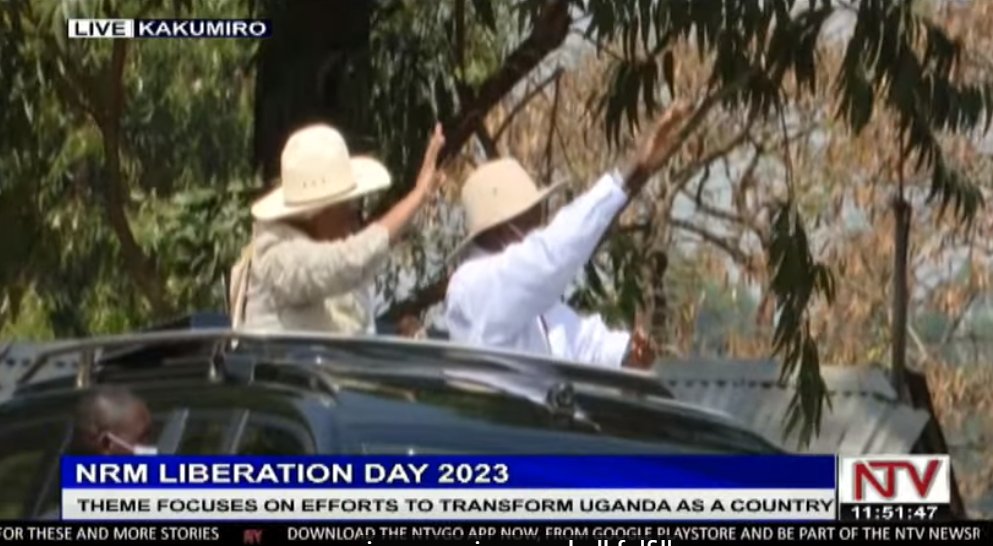The National Resistance Movement (NRM) party is holding National celebrations in Kakumiro district to mark 37 years since capturing power on January 26, 1986.
President Yoweri Museveni is the chief guest at the event happening in Kakeeka sub-county, in Kakumiro District under the theme “Our resolute efforts to transform Uganda is a promise we shall fulfil”.
The NRM chairman led a guerrilla war that lasted five years from 1980 – January 26, 1986, under the National Resistance Army (NRA) under the leadership of President Museveni captured. The NRA captured power.
Emmanuel Dombo, the NRM publicist says Kakumiro district is significant in the Luwero triangle bush war because president Museveni nearly lost his life there and his body guard was gunned down.
He however says since the NRM captured power 37 years ago, the ruling party has ensured peace , security and economic transformation for Ugandans.
“The NRA/NRM promised democratic governance, rule of law and economic transformation based on the 10 points programme. It is now 37 years ago and the successes can speak for themselves,” says Dombo.
In a message he posted on the NRM party’s official social Twitter account, the secretary general Richard Todwong apologized for misunderstandings and short comings in their administration over the years and promised better performance.
“We could have stepped on people the wrong way. We could have erred in one way or another as a party and a government, it was not intentional but for the good of the public and we hope that the public will understand that governance is not that simple.once in a while you may rub someone the wrong way or someone may go against rules of engagement. So if there’s people we annoyed or failed to meet their exceptions we apologize and promise to do better, “he says
History of the NRA Bush War
The Luwero War, was a civil war fought in Uganda by the official Ugandan government and its armed wing, the Uganda National Liberation Army (UNLA), against a number of rebel groups, most importantly the National Resistance Army (NRA), from 1980 to 1986.
The unpopular President Milton Obote was overthrown in a coup d’état in 1971 by General Idi Amin, who established a military dictatorship.
Amin was overthrown in 1979 following the Uganda-Tanzania War, but his loyalists started the Bush War by launching an insurgency in the West Nile region in 1980. Subsequent elections saw Obote return to power in a UNLA-ruled government.
Several opposition groups claimed the elections were rigged, and united as the NRA under the leadership of Yoweri Museveni to start an armed uprising against Obote’s government on 6 February 1981.
Obote was overthrown and replaced as president by his general Tito Okello in 1985 during the closing months of the conflict. Okello formed a coalition government consisting of his followers and several armed opposition groups, which agreed to a peace deal.
In contrast, the NRA refused to compromise with the government, and conquered much of western and southern Uganda in a number of offensives from August to December 1985.
The NRA captured Kampala in January 1986. It subsequently established a new government with Museveni as president, while the UNLA fully disintegrated in March 1986.
Obote and Okello went into exile. Despite the nominal end of the civil war, numerous anti-NRA rebel factions and militias remained active, and would continue to fight Museveni’s government in the next decades.




